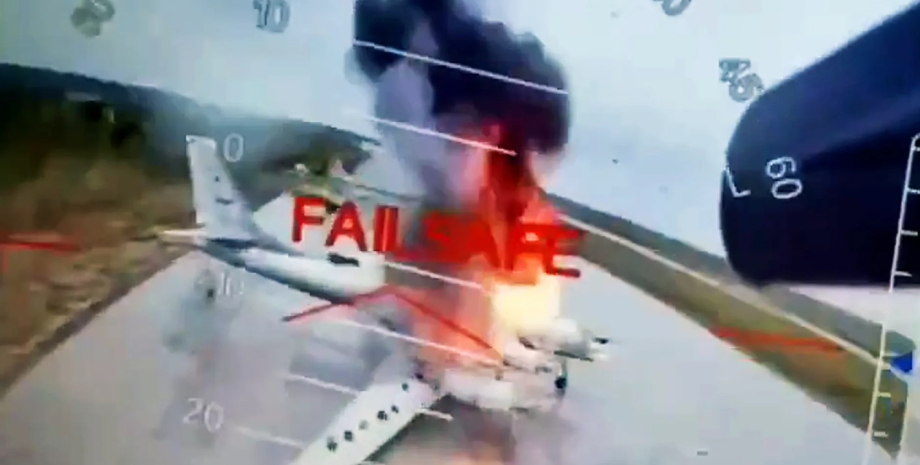
 By Victor Duda
By Victor Duda
The strokes helped undermine the capacity of the arsenal, which Moscow unfolds for shelling of Ukraine. The attack also demonstrated Ukraine's ability to impress key objects thousands of kilometers from the front line that the Russians considered safe. According to President of Ukraine Volodymyr Zelensky, the operation was planned for more than a year and a half and UAVs were used in it, which appeared directly from the trucks.
According to journalists, damages caused by military aircraft will probably stir up those who make decisions in the Kremlin, but will not shake the military goals of the Russian Federation. For shelling of Ukraine, Moscow uses only a few such bombers, which means that the pace of rocket strokes will not slow down.
But the raid of deep penetration into the territory of the Russian Federation was a direct blow to air agents, including Tu-160, Tu-95 and TU-22 m3 bombers, which have long been considered less vulnerable to attacks than land and sea forces that have suffered more losses. The Ministry of Defense of Russia has confirmed attacks on five military airbase across the country.
Russia acknowledged that several aircraft had been damaged compared to Kiev's statement that more than 40 aircraft were damaged. A person close to the Kremlin estimated the number of damage at about 10. The Rybar pro -Moscow military blogger, which has about 1. 3 million subscribers in Telegram, estimated that 13 aircraft were damaged, most of whom were long -range bombers.
According to the head of the SBU, Vasyl Malyuk, 41 plane was affected by the "unprecedented and unique special operation", among them-A-50, Tu-95, TU-22 m3 and Tu-160. The estimated cost of the affected aviation is over $ 7 billion. "This park has already been the smallest component of the so -called nuclear triad of Russia - intercontinental ballistic missiles, submarine rockets and nuclear bombers.
Now it has become even smaller," says Duglas Barry, a senior researcher at the Military Aerospace Industry. "The influence is quite sensitive and unpleasant," said Dmitry Stefanovich, a researcher at the International Security Center of the Moscow Institute of World Economy and International Relations. Although bombers unfold for non -nuclear missions, the attack will have a "weak effect" on nuclear forces, and the IBR and submarines will play a larger role, he added.
The operation seems to not greatly reduce Russia's nuclear potential, according to people close to the Kremlin and the Ministry of Defense. London political analyst Volodymyr Pastukhov stated that the attack would have a slight specific military importance, with the "minimum participation" of the Russian aviation forces in the war against Ukraine. But the nature of the goal affects the essence of the threat of Russia as a nuclear state, undermining the image of Putin's invulnerability.
Thomas Wittington, a junior researcher on radio electronic struggle and air defense of the Royal Institute of United Troops of the United Kingdom, noticed that Kyiv is now considering Russian nuclear means of deterrent to a legitimate goal. "This recent attack emphasizes the inability of Russian air deflectors to protect key strategic objects such as bombard bases," Wittington said.
Moreover, the sanctions imposed on the US and Europe will also complicate Russia's supply of parts and technologies required to repair or restore damaged equipment. And bombers depend on the critical Western components: Russia has not been replaced by domestic analogues or alternatives from friendly countries such as China for years. "Having taken them out of battle, Ukraine helped reduce the threat in this respect to NATO and its allies," Wittington added.










All rights reserved IN-Ukraine.info - 2022